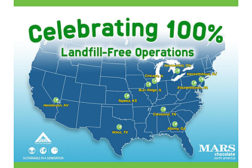Kraft Heinz releases corporate social responsibility report
The strategy also builds upon CSR goals and policies aimed at eliminating global hunger and malnutrition, creating a more sustainable supply chain and reducing its environmental footprint, as well as a more recent commitment to raise standards for treatment of broiler chickens in its U.S. supply chain.
Read More



